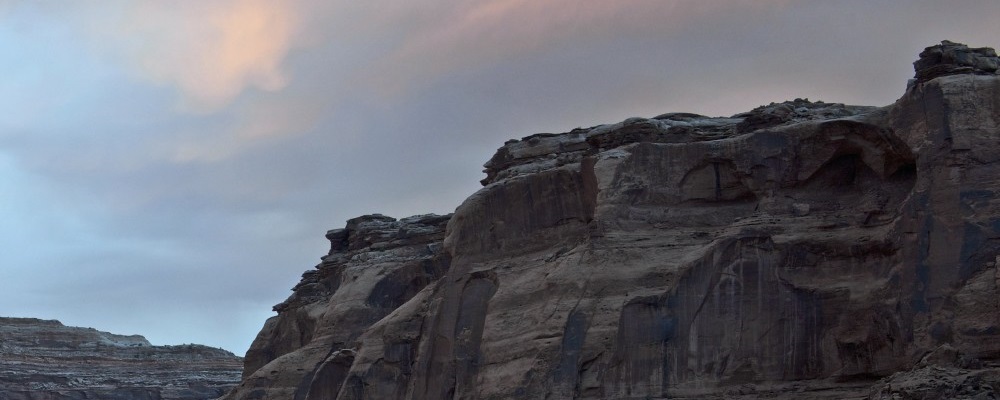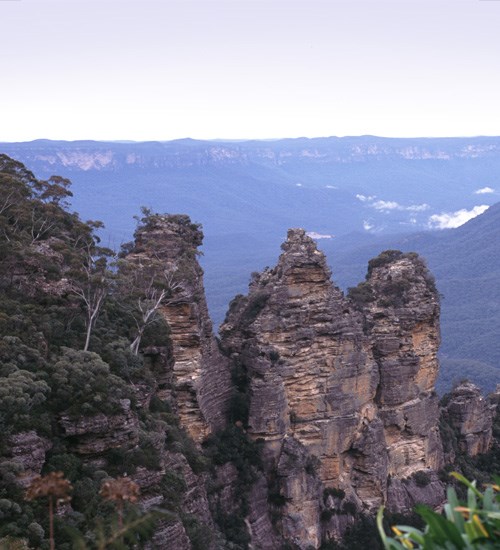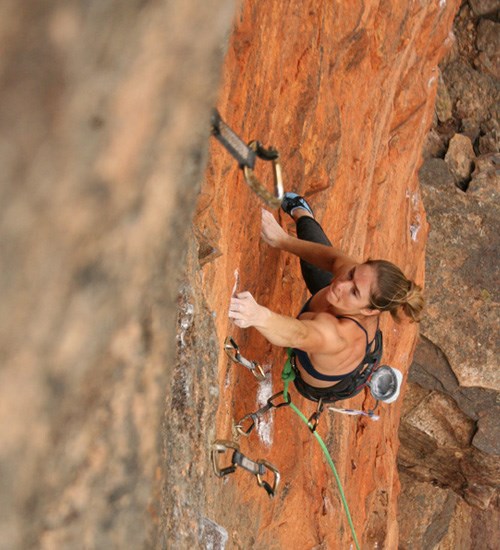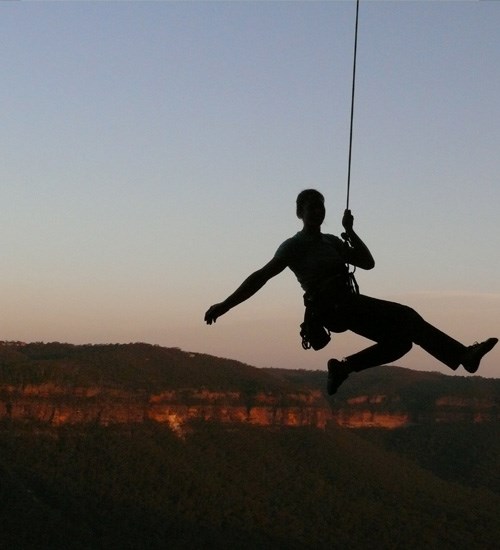| Your browser is not supported. | ||
|
Please browse our site using any of the following options:
| ||
A Climbers Guide to the Blue Mountains

Quick Facts
Your next adventure: Rock Climbing in the Blue Mountains
Where in the world? Blue Mountains, New South Wales, Australia
Activity: Rock Climbing, Sport Climbing
Difficulty: There is something for everyone. While the majority of climbs are for intermediate to advanced climbers, there are lots of good companies offering beginner climbs.
Wrap up: Heaps of options - high, good quality routes that are easily accessible and will keep you entertained for days on end. A unique and absolutely stunning landscape you will find hard to leave.
A Bit About the 'Blueys'
The Blue Mountains are a unique mountainous region in New South Wales that offers challenging and varied climbs, stunning landscapes and huge sandstone walls that make you feel as small as you are against them.
Even driving into the region can take your breath away - the further in you get the more you realise you're climbing deeper into another land full of huge cliffs, deep gorges and never ending options for exploration. The blue green vistas of the Blue Mountains create this amazing place that you may never want to leave.
The majority of the area is incorporated into the Greater Blue Mountains Area World Heritage Site. It's a sandstone wonder of ridge lines separated by giant gorges up to 760 metres deep and elevations of up to 1189 metres. The Blue Mountains are a popular destination for climbers, hikers, mountain bikers and more. It's not far from places of comfort such as Katoomba and Blackheath, but certainly has enough to keep you occupied for a few full on days of climbing some of Australia's best sites.
Most of the crags are within an easy driving distance, while some are even able to navigated on foot. There are a lot of different areas offering good climbs, but the most popular is around Blackheath where there is a high concentration of good climbing.



Climate
The climate of the Blueys is somewhat cooler than the lower Sydney region. During the winter months (June, July, August), the average temperature in the Upper Mountains is around 5 degrees celsius, while in summer (December, January, February) the average temperature reaches around 18 degrees celsius. The Lower Mountains have a much warmer climate, ranging between an average of 16 degrees celsius in winter and 29 degrees celsius in the summer months.
There is generally more rain in the mountains than in Sydney. Although the Blue Mountains have a reputation for snow in winter, there are usually only around five snow days each year in the Upper Mountains. Snow is extremely rare below Lawson, though frost, ice and sleet are common.
Climbing is possible all year round but like many other areas Spring and Autumn are prime times. Shaded crags are desirable in Summer and even on chilly windy days in Winter there are some sheltered areas if you're keen.
The Blue Mountains weather can be very unpredictable so you have to prepare for everything! Even if it is warm and sunny in Sydney, when you get up to the mountains it can be the opposite. The best way to prepare for this is to pack light but versatile clothing such as windproof or GORE-TEX jackets. These jackets are great because they're not too bulky if you have to take them off and stuff them in your backpack.
Insulated jackets are a must in winter and just about every climber in the Blue Mountains will be seen wearing one. These also compact nicely in your backpack when not needed. On the days when it is so cold climbing that you can't feel your fingertips it's best to wear something warm that is still easy to move around in such as a fitted fleece jumper.
A Few of Sam's Tips for Your Trip to the Blue Mountains
- Always wear something comfortable as you never know what adventurous activity you might end up doing.
- Allow plenty of time to go out climbing as you don't want to rush while at the crag.
- Enjoy climbing as a social day out with friends.
- Bring plenty of water as it's never enough.
- Bring plenty of food including energy snacks such as muesli bars and nuts. Fruit is a good natural source of energy and it's also decomposable, minimising the chance of littering.
- There is not always mobile phone reception in the mountains so remember the number 000 for emergencies.
- Other than some of the world's finest rock climbing, the Blue Mountains also offers many fantastic bushwalks, canyons and lookouts. It also a great place for eating out or enjoying a coffee as there are many trendy cafes around the Katoomba and Leura areas. Her favourite things in the mountains (other than climbing) are go to the Hominy Bakery in Katoomba and visit the Valley of the Waters in Wentworth Falls.